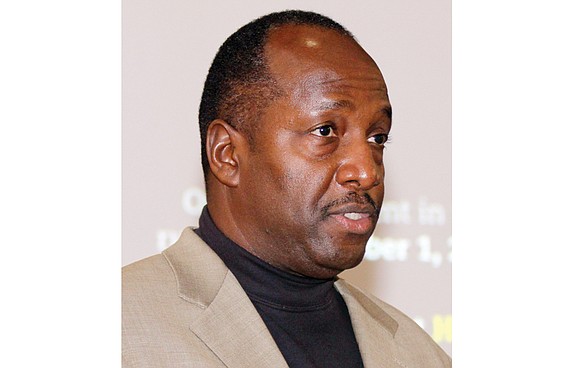Virginia NAACP steps up lobbying
Jeremy M. Lazarus | 1/13/2018, 10:26 a.m.

Jesse Frierson is ensuring that the Virginia State Conference of the NAACP will have a strong, vocal presence at the General Assembly.
As the new 60-day session was gaveled to order Wednesday, the Richmond businessman prepared to lead a team of 12 volunteers to attend subcommittees, meet with legislators, push the state civil rights group’s priorities, advocate on the budget and try to kill or at least gain positive amendments to bills the group opposes.
“Our goal is to be more effective,” said Mr. Frierson, 60, chair of the state conference’s political action committee.
The team he has assembled will be among the largest to take part in lobbying.
Outside of major corporations, most organizations, as well as local governments, usually can afford to have just one or two people carrying their message.
Mr. Frierson said a big team is needed to advocate for the legislation the NAACP wants passed.
The list of issues on the NAACP’s front burner — most of which have died in hostile committees in past sessions — include increasing the dollar amount that turns larceny into a felony that carries prison time from $200 to $1,500 and raising the state minimum wage for $7.25 to $15 an hour.
The NAACP also wants the legislature to end long-term school suspensions that lead children away from education and toward prison; expand Medicaid to uninsured adults who cannot afford health coverage; impose standards on police use of body cameras; and eliminate barriers to absentee voting and enable people to register and cast ballots on Election Day.
Mr. Frierson acknowledges that getting such bills passed remains a challenge, though the reduction in Republican power, where most of the opposition has come from, could aid the NAACP and other groups in securing greater support.
Still, he said that having multiple people pushing these issues every day is the only way to have a chance to secure majority backing. He said the NAACP also needs a strong team to monitor bills in order to try to beat back legislation hostile to the NAACP and its members.
For the conference’s current president, the Rev. Kevin L. Chandler, this is just the kind of approach he wants to see in seeking to raise the group’s profile.
He praised Mr. Frierson for taking command of the effort to “ensure our interests are known and supported.”
For years, the state organization relied on one or two people, primarily the executive director, to handle lobbying, but Mr. Frierson said one person cannot do it all.
“There’s just too many places to be at the same time,” he said. “We needed more people to be there every day and that’s what we are doing. It also is helping us create relationships and ties with other groups with similar views on legislation.”
Mr. Frierson began the stepped up lobbying effort last year under the previous president, Linda Thomas.
Among the first changes, he moved the state NAACP’s lobbying day to the Tuesday following the holiday for Dr. Martin Luther King Jr.
He said that so many people come to the General Assembly on the holiday that the NAACP’s message was getting lost. “So many people are coming and going that legislators don’t have time to pay attention.”
Moving, the lobbying day to the following day — this year Tuesday, Jan. 16 — means members of NAACP branches who come from across the state have more opportunity to speak with Democratic and Republican lawmakers about issues, he said.
Last year, he recruited seven volunteers to spend time working with House and Senate members, a move that helped that ensure more lawmakers in the House and Senate were aware of their positions.
The extra help proved critical to persuading one delegate to withdraw a bill hat would have authorized police departments to withhold the name of an officer involved in shooting a civilian, he said.
Mr. Frierson said that recruiting this year was easier as younger members of the conference and people with previous experience in lobbying are seeking this effort as a better way to be involved.
“We’re working in a coordinated fashion. We split up the bills so that everyone can focus on specific areas,” he said. “We all have our assignments.
“We are nonpartisan in our philosophy,” he said. “Our intent is to support good bills that look after and support and protect people, whether they come from Democrats or Republicans.”






